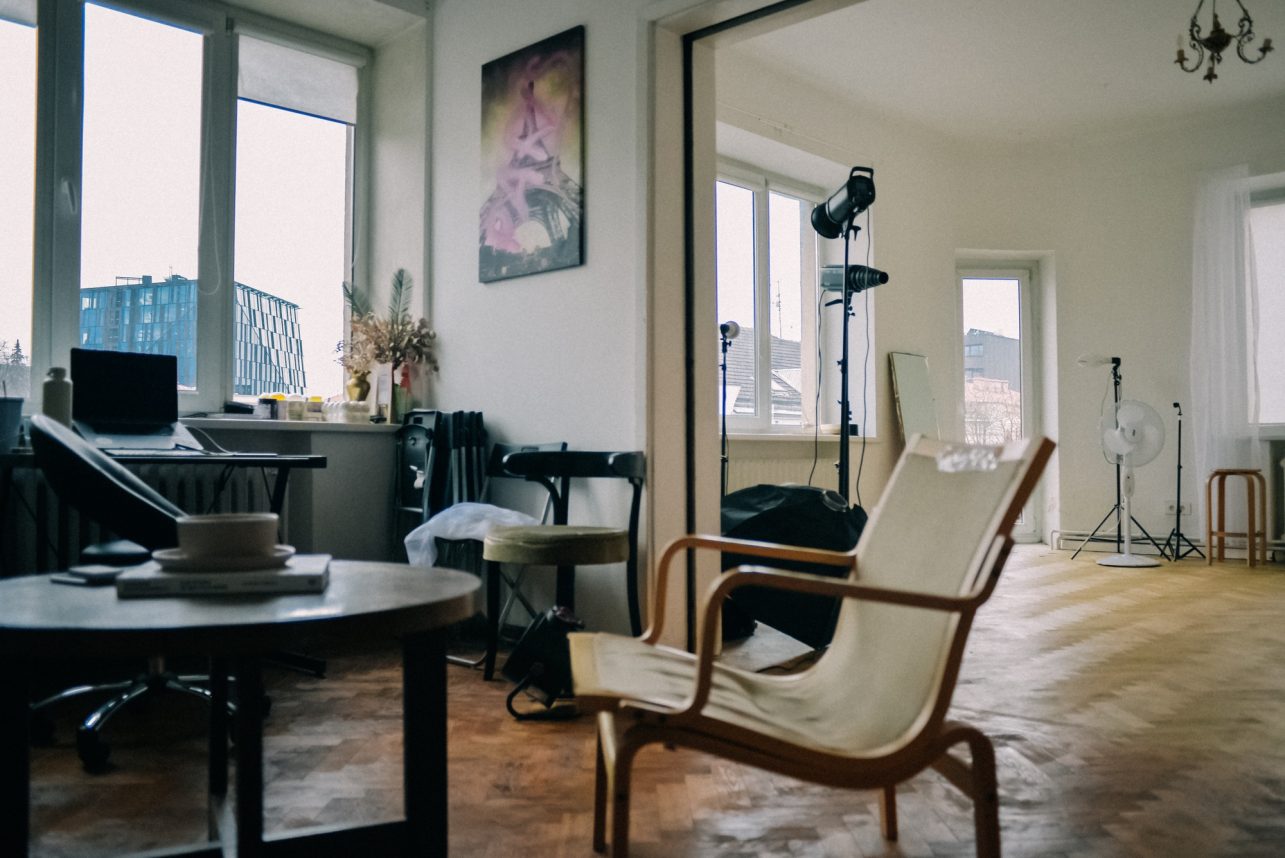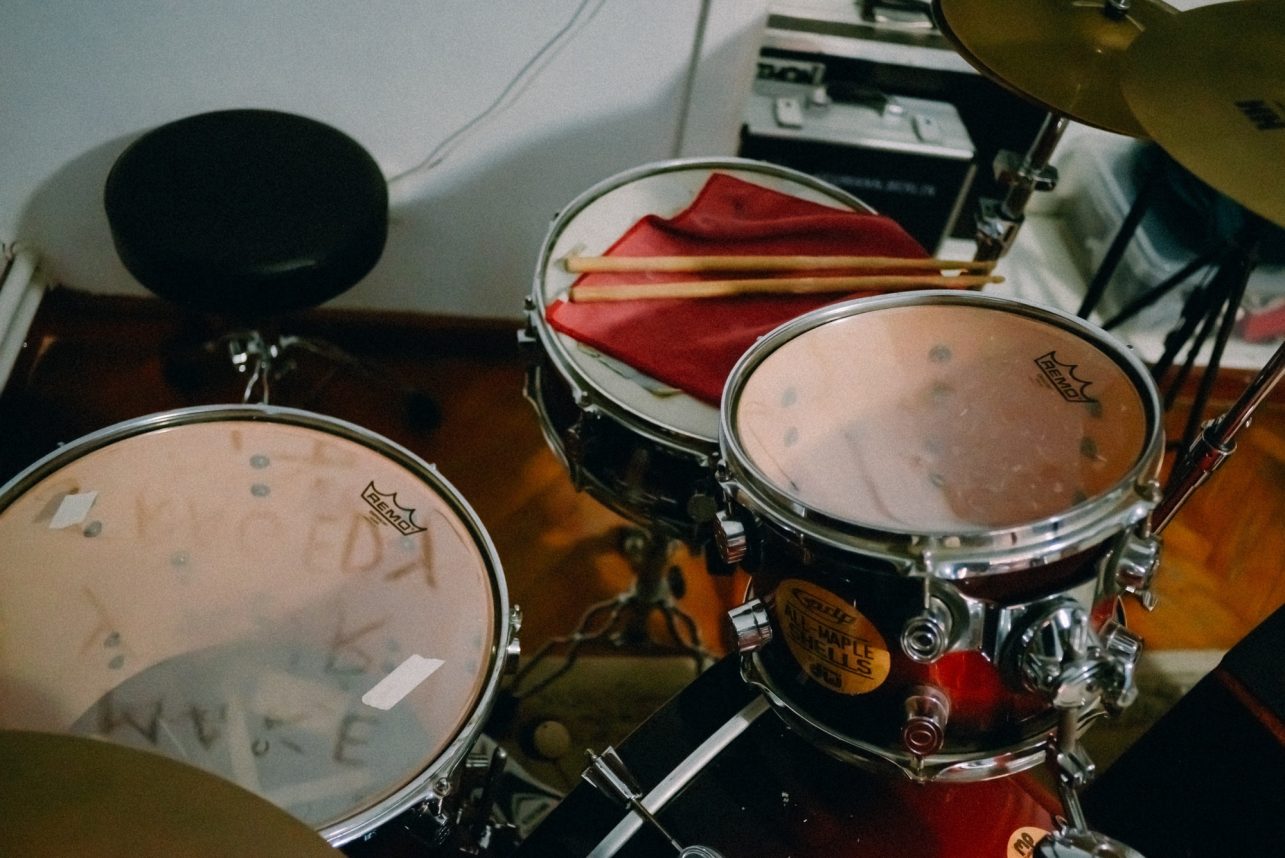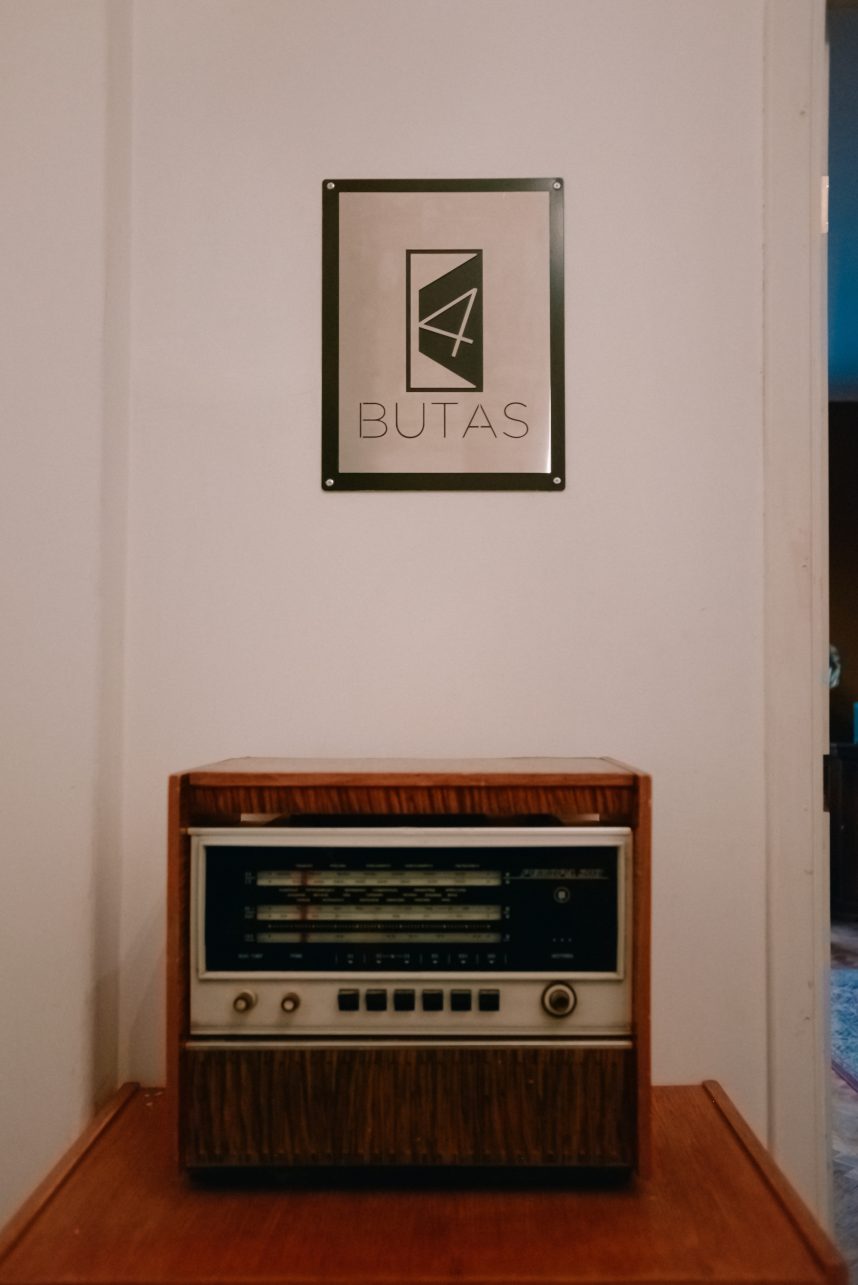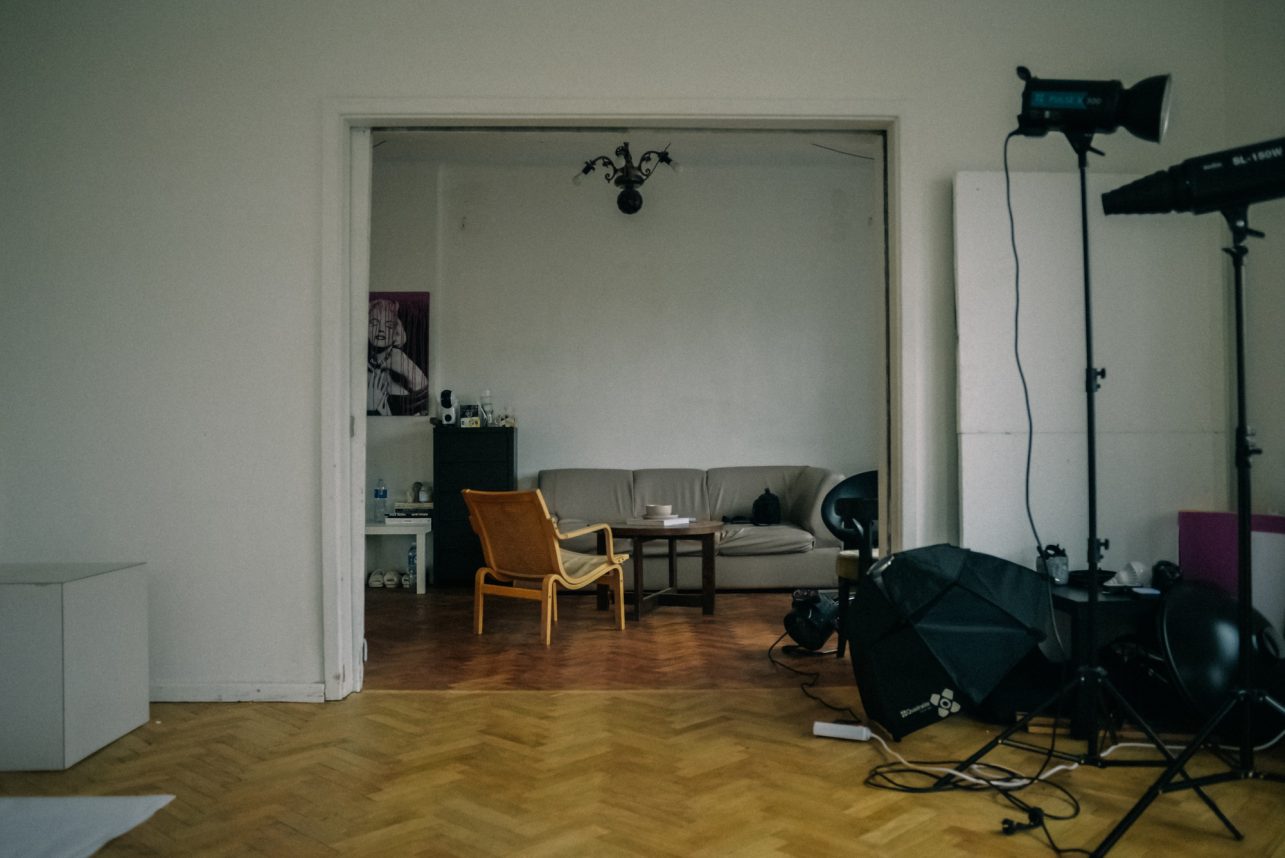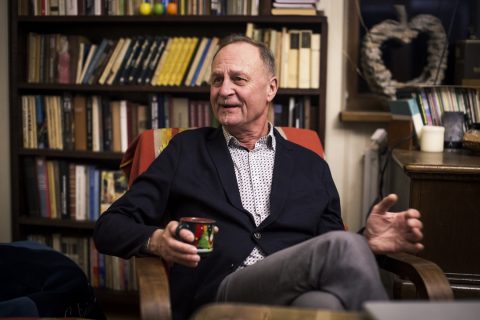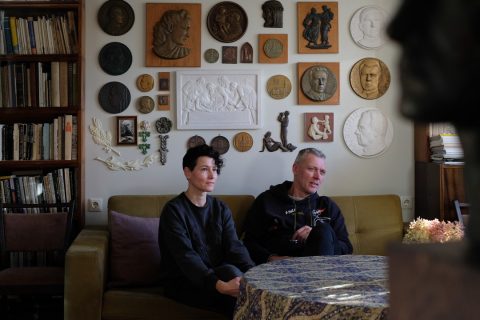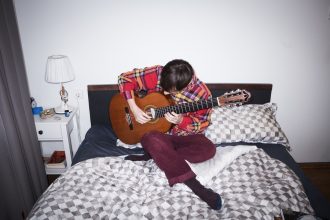At the end of 2018, posts about the soon-to-open 4th Apartment began appearing more frequently in social media feeds. I remember many acquaintances sharing the news, ranging from musicians and cultural figures to IT specialists and mechanics. It seemed that almost every young person who was at least somewhat involved in the cultural field was lending a helping hand in the preparation process.
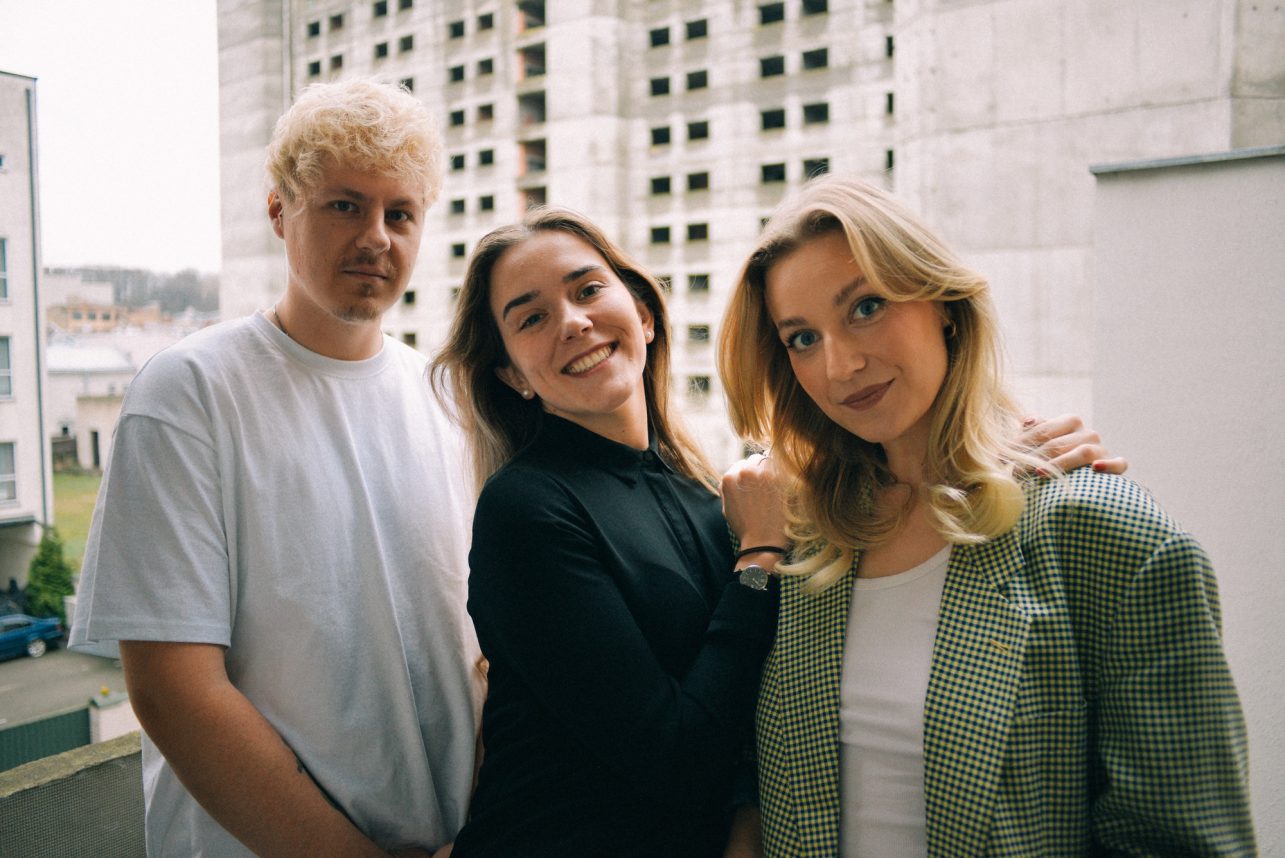
The “golden nugget” located at the beginning of Kęstučio Street shone its brightest for a little over a year – from October 2018 until early 2020. Then, as the pandemic swept across the world, everything came to a halt. Permanently? Representatives of the 4th Apartment – the creator of the concept Lina Majauskaitė-Kazlauskienė, former event organizer Monika Kazlauskaitė, and the current space manager Romantas Daugėla, who also contributed to the curation of events – told me about all the good and bad things that happened there over those months.
For a long time, before my interviewees moved in, the apartment was home to a law firm and an IT office, and the walls were covered in wallpaper with faded dollar signs. Upon entering you could feel the Soviet past that was calling for a major overhaul as soon as possible. “It was very difficult at the beginning, nobody believed in us, nobody wanted to help us,” Lina says. As soon as they got the keys, the curators embarked on a months-long renovation journey that involved all their relatives, “I’m glad that we had some really great friends and relatives who helped us. For example, my dad installed the toilet, and my brother fixed the electricity. We even posted on social media that we were looking for a person to paint the walls, and all we could offer in return was a slice of pizza. And we still got help. It was really hard, but with the community’s support, anything is possible,” Monika added.
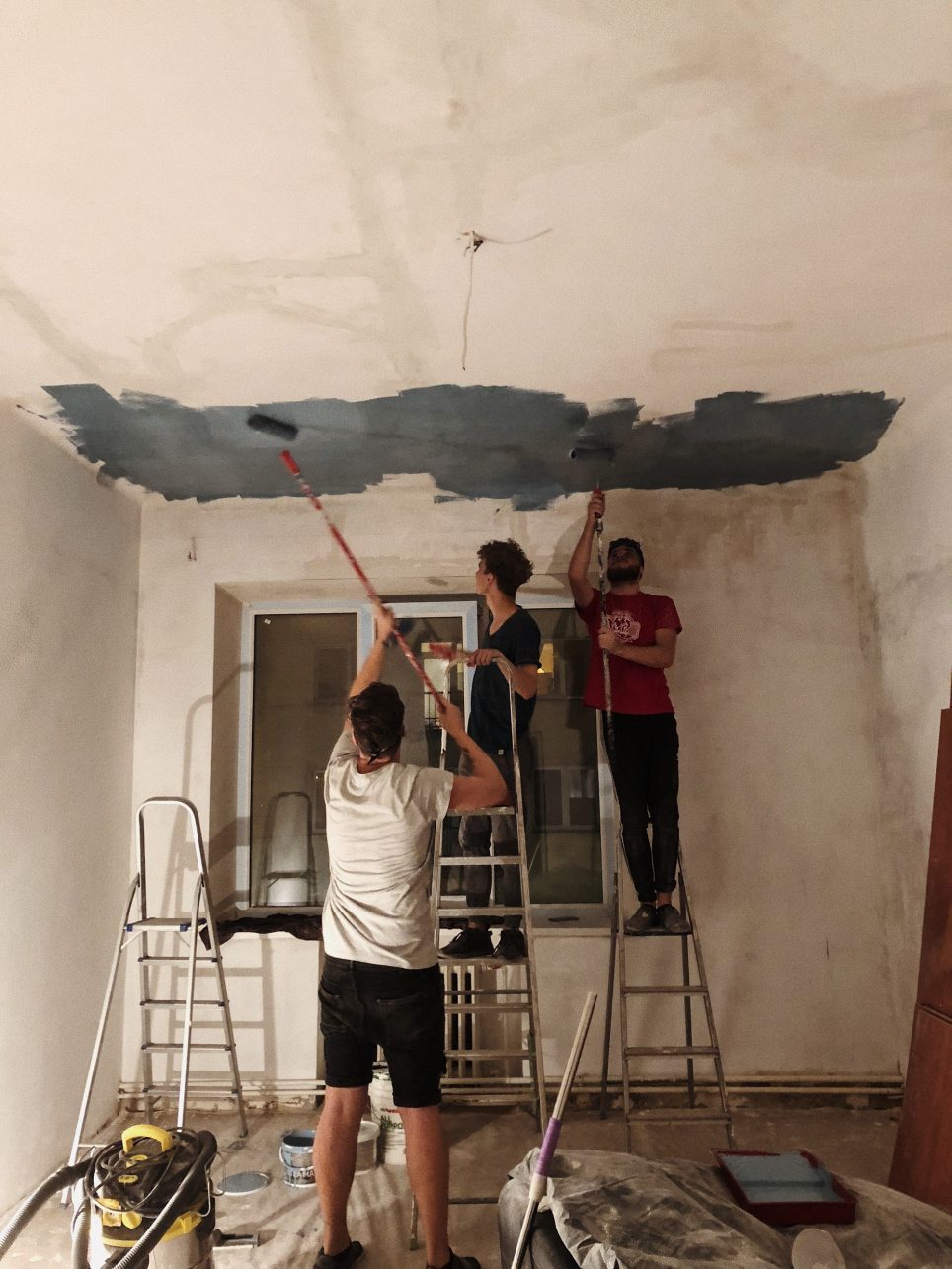
During the renovation, the plan for how the spaces would be used began to change gradually. Initially, the focus was not on events, exhibitions, or concerts. One of the founders of the 4th Apartment, Lina, had planned to establish a photo studio in it. “I wanted to have my own space because renting an apartment for a month was cheaper than renting a photo studio for a few hours. Over time, I realized that many people were interested in what we were planning to do here, and some even offered to help. Since we were surrounded by artistic, cultured, and musical people, we realized that we could do so much more in this space. That’s how we opened ourselves up to creativity,” Lina explained.
When we opened the apartment, community spirit helped everything fall into place. Many began to see the space as a great venue not only for the photo shoots mentioned above but also for other events due to the apartment’s excellent location and unique small spaces that created a really cozy and intimate homely feeling. My interviewees recalled that at the time, very few people understood how things like concerts, performances, exhibitions, stand-up shows, yoga sessions, or even exams could be held in a simple apartment instead of a concert hall. “The spaces were very different – from a photo studio to a music studio, a kitchen or a large balcony overlooking the ghost of Kaunas: the Britanika Hotel. It’s true that in the beginning we only let in the people we knew – we were afraid that they would dirty the carpets or some such, but eventually, we relaxed,” Romantas said. It seems people were simply passionate about the idea. They knew that it was not commercial giants behind these spaces, but ordinary people interested in culture and wanting to gather like-minded people. “People wanted to experience the spaces of 4th Apartment through their own lens. I believe that this is where the magic was. It’s not for nothing that to this day I still think about all the beautiful things we created together almost every day,” Monika added.
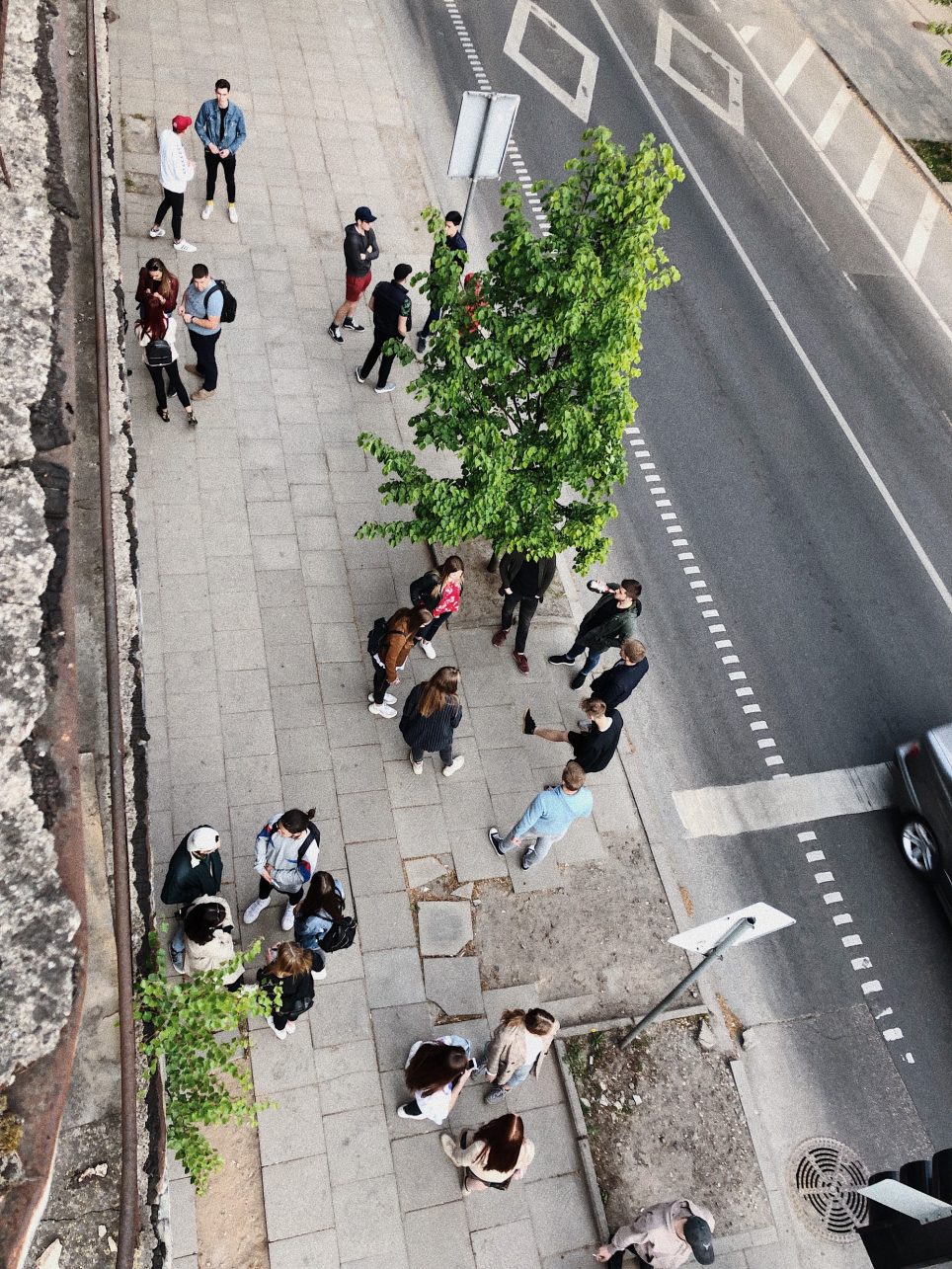
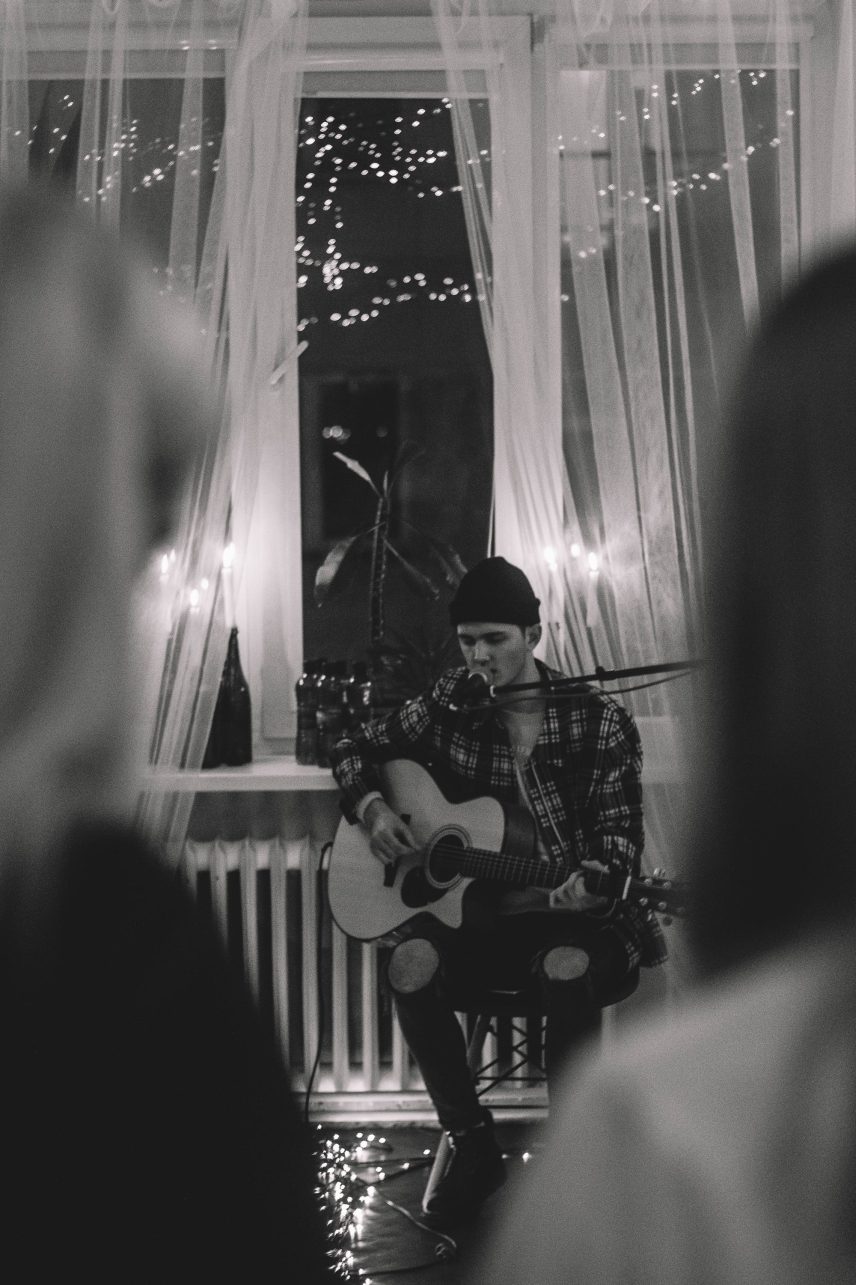
4th Apartment can fit 150 people – that’s the limit. And that is how many of them gathered in the space of almost 110 square meters for one comedian’s standup show. “Some of them didn’t even fit – they were queuing outside the door in the rain,” Romantas said with a smile. During that event, one of the kittens called Pycha kept by the curators of the apartment, got lost among the people. Fortunately, he didn’t disappear for long – it turns out that it was in one visitor’s hoodie or even a pocket.
“The 2018 Christmas event, when we were visited by the film crew of the Farai TV show, is what I think best caps off the event phase of 4th Apartment. We opened the door, and there were: cameras and police, while we had a huge crowd and lots of noise inside. We got a bit scared, but the officers quickly realized it was just a bunch of cool young people, not causing any trouble, just dancing and chatting. The cameras were turned off pretty quickly, they gave us a warning, and then they left. I guess we were doing something right since they didn’t have anything to complain about,” Romantas chuckled.
After such a rapid start, the 4th Apartment expanded. By the summer of 2019, the team realized they were running out of space. Coincidentally, a fast-food restaurant called Bazooka opened right below them around the same time. Soon, they began planning joint events with the restaurant. “They would provide food for us and the performers, as well as drinks, and we would organize events in the parking lot next to them, attracting crowds. If we needed more space, we’d bring furniture down from the apartment. Everyone was happy. But looking back now, it was absolute madness, we’d just show up in a public parking lot, set up everything ourselves and organize events without any permits. And we even made a bit of money from it to cover the apartment’s expenses,” Monika laughed.
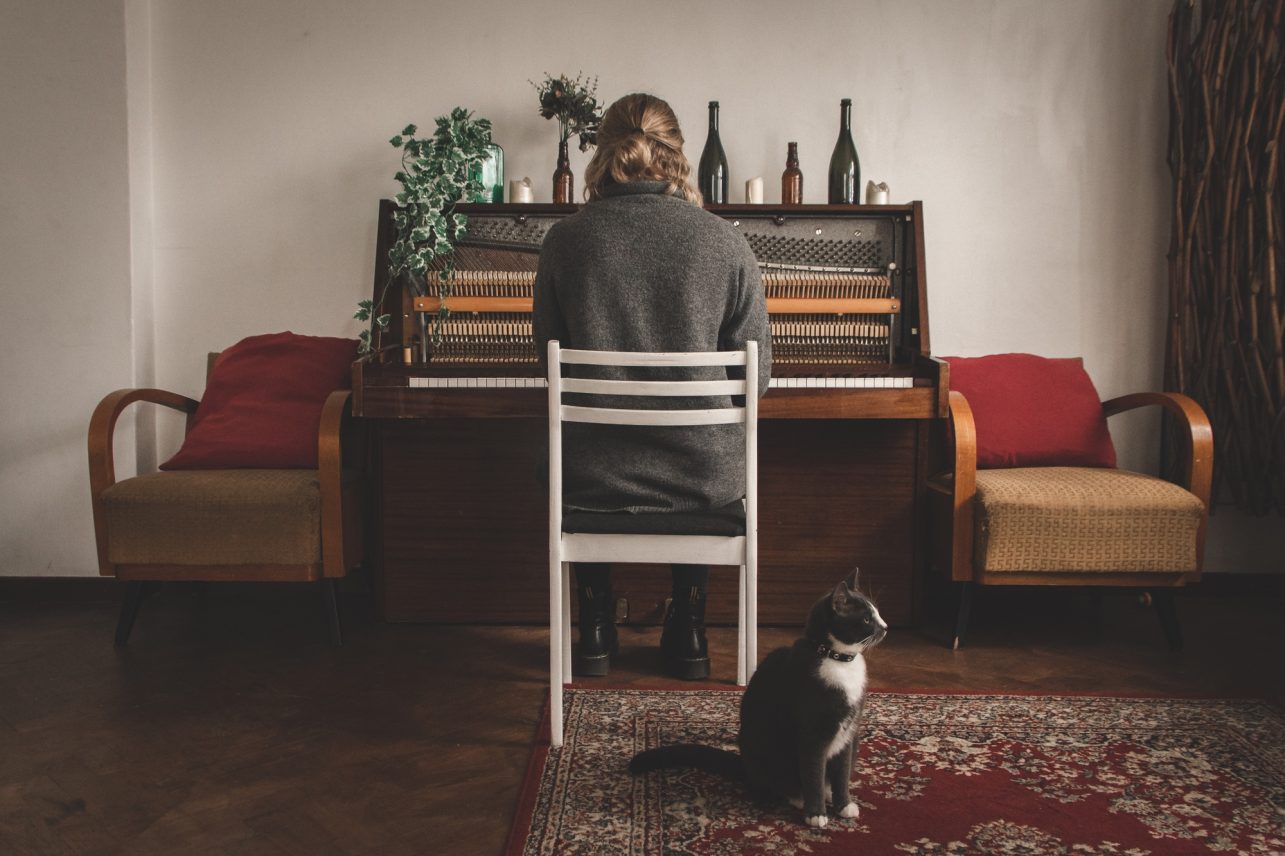
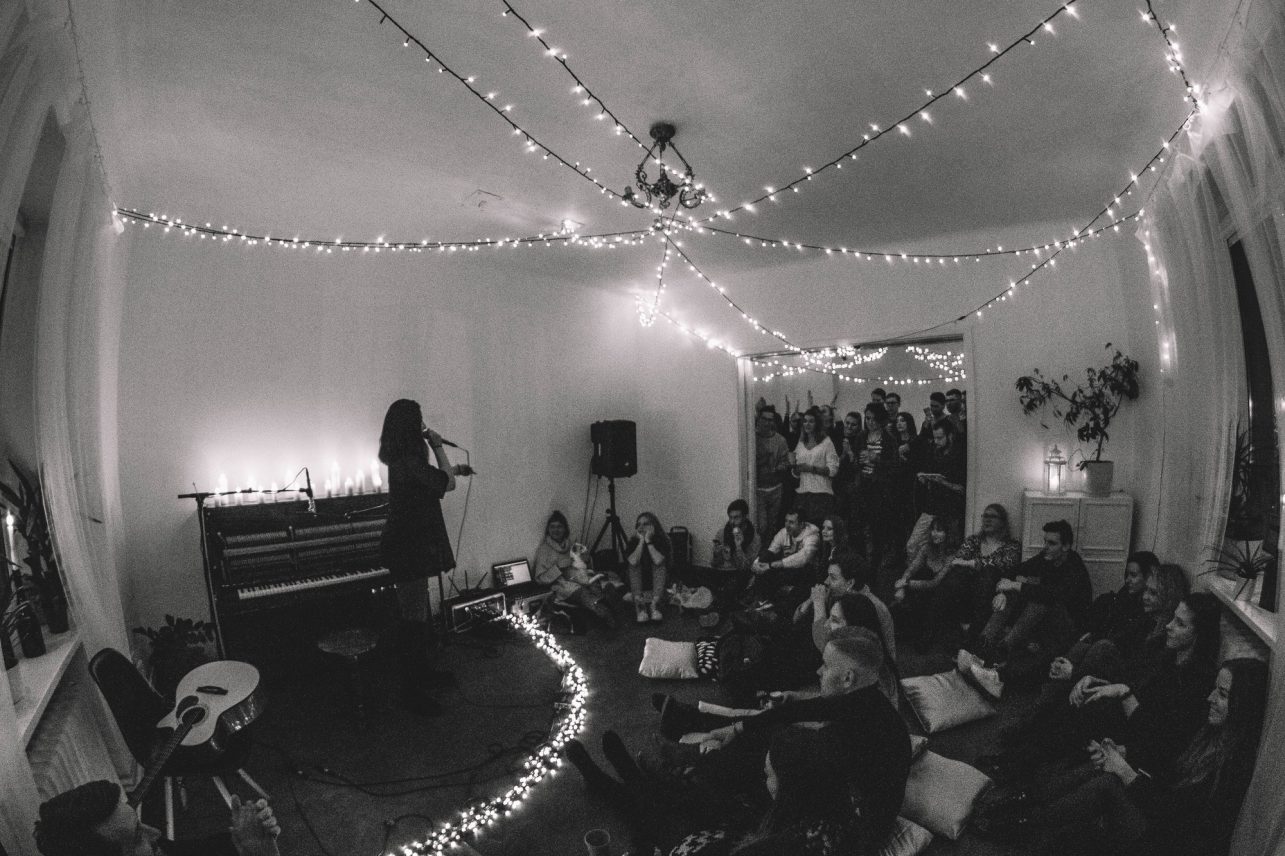
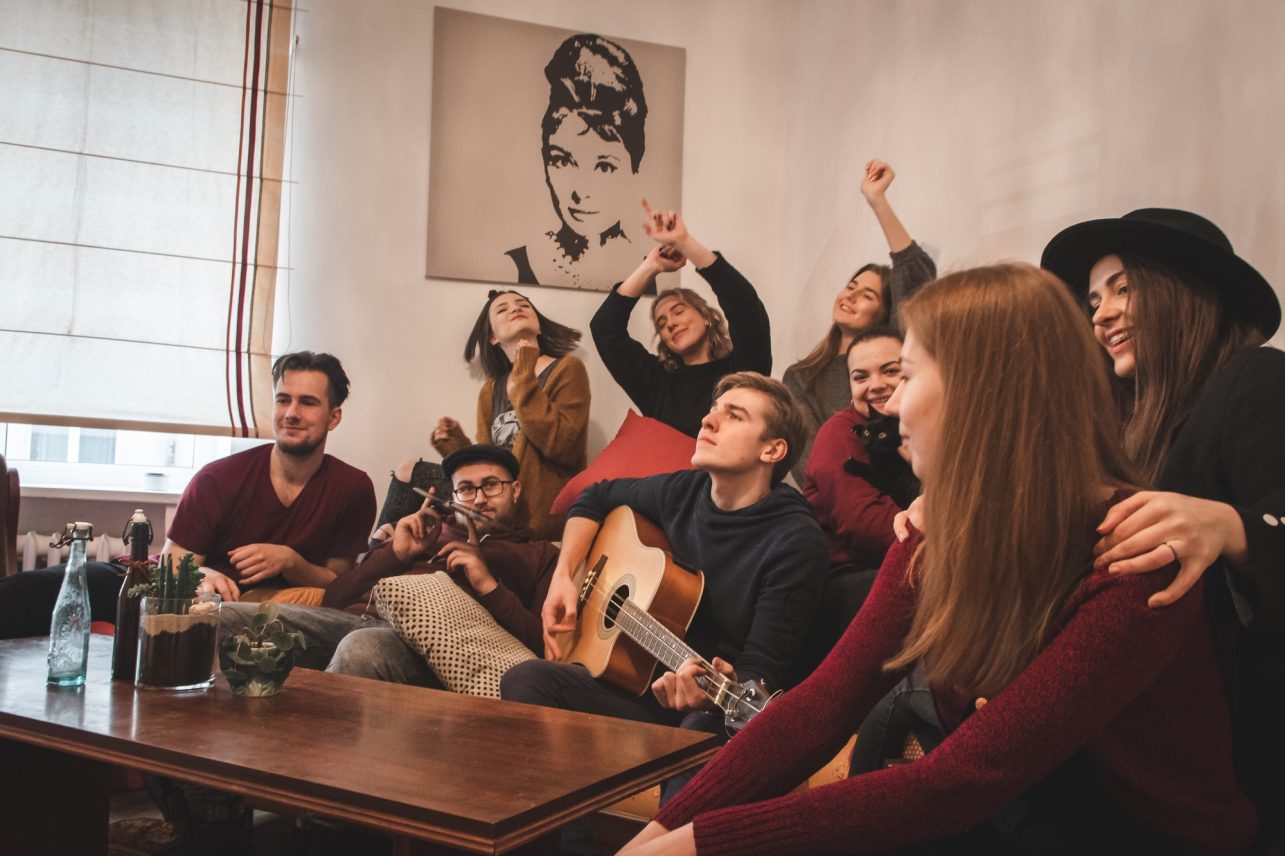
After hearing so many interesting stories and experiences, I got slightly confused: why did this unique space close its doors to public events in its heyday? I believe the answer may seem predictable to some – the neighbors contributed to it. However, the final decision was taken only after the quarantine. “We started to pay more attention to what the neighbors were saying when we became familiar with the noise regulation. We were more careful about choosing events, trying not to make noise after 10 p.m. because the police were always called. Eventually, before every event, I started to feel the pressure – I knew that I would either have to go to the neighbors or get a call from the owner. To be honest, we got tired,” Lina, the author of the whole concept, explained. The curators also remembered that they did not understand the anger of the neighbors, especially because there was a strip club on the ground floor of the building. “We used to do our events until 10–11 p.m. and we were always getting reprimanded, but the same strip club that makes noise every night and whose sounds can be heard on all floors opens at the exact time we close. And the neighbors didn’t mind,” Monika said.
Now in its fourth year, the rhythm of the 4th Apartment has slowed down considerably. When I asked the organizers – Monika, Lina, and Romantas – whether similar spaces could thrive today, I was met with smiles. All three agreed that Kaunas really needs such spaces, but none could pinpoint the secret ingredient that created the wonderful emotions in the spaces they curated. Perhaps it is the sense of community that is so often lacking. But who knows, maybe these spaces will someday be reborn for a second public life. For now, the apartment remains in Romantas’ hands. It still operates as a photography studio, a recording studio, and most recently an office. There are also plans to create a podcast recording studio. As I understand it, the concept is about to change: the renovation is about to start, followed by all kinds of ideas for the future. “I’d love to invite everyone back, but for now let’s leave everything between the lines. The most important thing is that the apartment is still alive, with cameras, guitars and synthesizers, but much quieter than before,” Romantas concludes the conversation.
